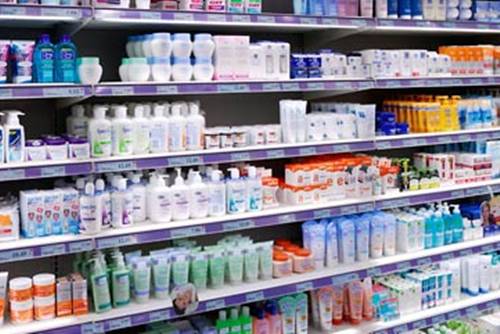If you have oily skin or have problems with blemishes such as whiteheads, blackheads and pimples, taking extra care when choosing your skin care products can really pay dividends. Knowing the right ingredients to look for can help to ensure that you buy a product that is going to be really effective and can often save you money too.
In this article, we provide a glossary of the most common names you will find on the labelling for skincare products – let’s take a look behind the long names and the jargon and find out what skin care ingredients do.
Commonly Found Skincare Product Ingredients
- Alpha Hydroxy Acids
[easyazon-image align=”right” asin=”B002K9Z946″ locale=”us” height=”280″ src=”http://ecx.images-amazon.com/images/I/21FuywlDceL.jpg” width=”280″]These act as exfoliants for your skin, helping to slough off those dead skin cells revealing younger looking skin beneath. The beauty of using products containing alpha hydroxyl acids (or AHAs as they are often called) is that there is no abrasive mechanical action needed to exfoliate your skin which can be useful for sensitive skins and exfoliating treatments for the delicate under eye area often include AHAs for this reason. Pictured (right) is Naseberry Eye Exfoliant, an organic product, packed full of goodies for the delicate skin of the eye area – and our favorite product for the job! - Antioxidants
 Antioxidants work by neutralising free radicals which destroy skin cells. Even if you do not see the word antioxidant on the labelling, ingredients such as vitamins A, C and E and green tea have an anti-oxidant action in skin care products.
Antioxidants work by neutralising free radicals which destroy skin cells. Even if you do not see the word antioxidant on the labelling, ingredients such as vitamins A, C and E and green tea have an anti-oxidant action in skin care products. - Beta Hydroxy Acids
The most common type of beta hydroxy acid used in skincare, is salicylic acid. BHAs are generally regarded as being more gentle on the skin than AHAs although they work in exactly the same way. - Botanicals
These naturally sourced ingredients mainly come from plants and are used for their healing and regenerative properties. The most commonly used are aloe vera, ginseng and gingko. - Co-enzyme Q10
This naturally occurring enzyme is mainly used in anti aging products as it helps fight wrinkles and lines. - Emollients
A major ingredient in moisturizing creams and lotions, emollients help to strengthen the skin’s own natural moisture barrier, helping it to stay hydrated and helping to prevent dehydration. - Humectants
Like the emollients mentioned above, humectants are a major ingredient in any good moisturizer and work by drawing moisture into the skin from the surrounding atmosphere. - Retinol
Retinol is a very powerful antioxidant, made from vitamin A. Some people can get skin reactions from using retinol but, it can produce really good results. Take a look at our article reviewing a product called Tretinoin which is contains Retin-A, which usually causes fewer problems. Prescription forms of retinol are used to treat skin damage caused by the Sun’s uv rays.
Common Skincare Labelling Terms Explained
You might also see the following terms on the labelling of skin care products. These descriptive terms do not refer to a specific ingredient but tell you what you should expect from the product. For example:
- Hypoallergenic
This term means that the ingredients in the product have been tested to ensure that they are very unlikely to cause any form of allergic reaction. This could be very important for you if you have sensitive skin. - Non-comedogenic
This term means that the ingredients will not cause clogging of the pores which can lead to comedones (open comedones = blackheads, closed comedones = whiteheads) and can, in turn cause further problems for those of us with skin prone to acne breakouts. - Sun Protection Factors
 Sun Protection Factors are often abbreviated to SPF. This term is followed by a number, the higher the number, the greater the protection from the ultraviolet rays from the sun which are a major cause of skin aging and potentially, skin cancers.
Sun Protection Factors are often abbreviated to SPF. This term is followed by a number, the higher the number, the greater the protection from the ultraviolet rays from the sun which are a major cause of skin aging and potentially, skin cancers.
Our brief roundup is not intended to be a complete list. You can find much more comprehensive information at a website called Cosmetics Cop – this link takes you to an alphabetical dictionary of ingredients which is a useful reference.
You might also like to know that the word “Aqua” is often the first ingredient mentioned on the labelling for any skin care product – it actually means, plain water, H2O plain and simple – it’s vital for your skin and drinking plenty of it every day, in addition to your skin care routine can help to ensure bright, clear, blemish-free skin.
Alison Graham on Google+

